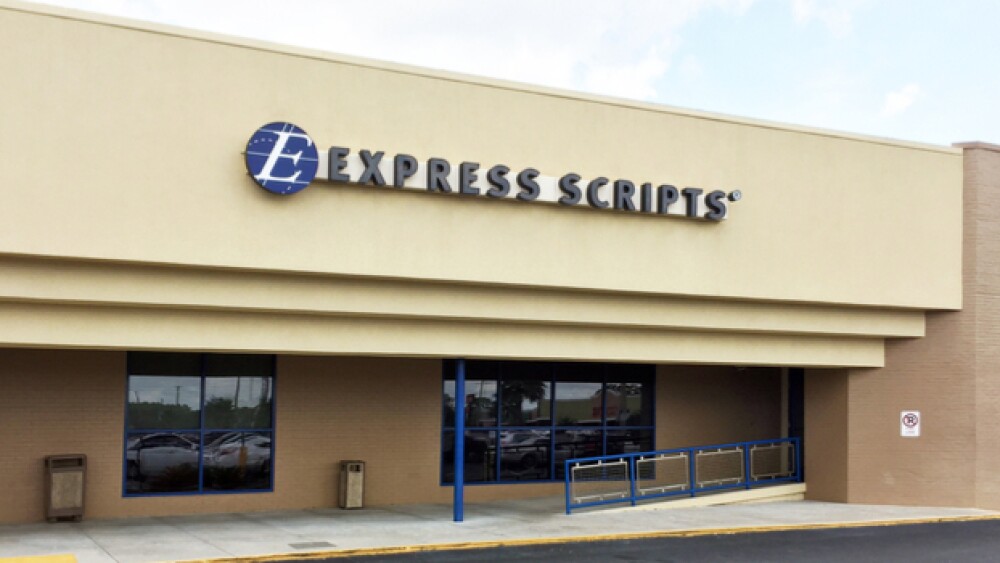Express Scripts is already known for its role of bringing prescriptions to the doors of consumers. Now the company is moving into a new area of providing medicines—expensive gene therapies.
James R. Martin / Shutterstock.com
Express Scripts is already known for its role of bringing prescriptions to the doors of consumers. Now the company is moving into a new area of providing medicines—expensive gene therapies.
Reuters is reporting that Express Scripts, a pharmacy benefits manager, is in talks with BioMarin, Spark Therapeutics and bluebird bio to become the distributors for the gene therapies under development for the treatment of hemophilia. Express Scripts Chief Executive Officer Steve Miller told Reuters that his company is eying the distribution contract for the one0-time hemophilia gene therapies that could be approved over the next two years. Pricing for those therapies are still being negotiated but could begin at more than $1 million, Reuters noted, as reported by CNBC.
The move comes as Express Scripts is expanding its low-profile specialty pharmacy business, Reuters said. By handling certain drugs on its own, rather than providing coverage through a drug store, Express Scripts is able to hold onto more profits. The specialty pharma business is one of Express Scripts’ fastest growing segments. It currently accounts for about one-third of the company’s total revenue, Reuters said.
The company’s specialty pharma division would handle the gene therapies business. To avoid potential conflicts of interest, Miller said the specialty pharma business at Express Scripts is insulated from its business negotiating the price of drugs from clients like Spark and BioMarin. Miller told Reuters that the specialty pharmacy business is “not privy to their acquisition prices or anything else, and the specialty pharmacy is not privy to the contracts that the PBM has with their payer clients or anything else.”
Miller told Reuters that the high cost of those gene therapies is warranted because they are being developed as potential cures. The $1 million-plus price tag for a (potentially) one-time treatment is looked at as a good thing as it will supplant the cost of multiple treatments that can range in the hundreds of thousands of dollars. Miller called it a “great deal,” Reuters reported.
That’s a different tone than payers typically use when dealing with specialty drugs. Reuters noted that companies like Express Scripts, UnitedHealth Group, Optum and CVS Health Corp. typically decry the high costs drug manufacturers place on some of their products – particularly those for rare diseases. Lately, though, pharmacy benefits managers have also been under scrutiny for their pricing.
Express Scripts is already involved with handling gene therapy treatments. The company covers Spark’s Luxturna, a first-of-its-kind gene therapy for a rare, genetic form of blindness. The price for that treatment is about $850,000. Express Scripts claims that its exclusive contract with Spark is cost-saving. Miller told Reuters it saves money “by cutting out the hospital pharmacy markup, which is 6 percent for the government Medicare program and more for commercial business or at least $60,000 on a $1 million drug.”
Luxturna isn’t the only high-priced drug that Express Scripts covers. The company also has deals in place for Biogen’s spinal muscular atrophy treatment Spinraza, which has a first-year price of $750,000. The company also covers Novartis’ CAR-T treatment Kymriah, which has a cost of about $475,000, Reuters reported.





